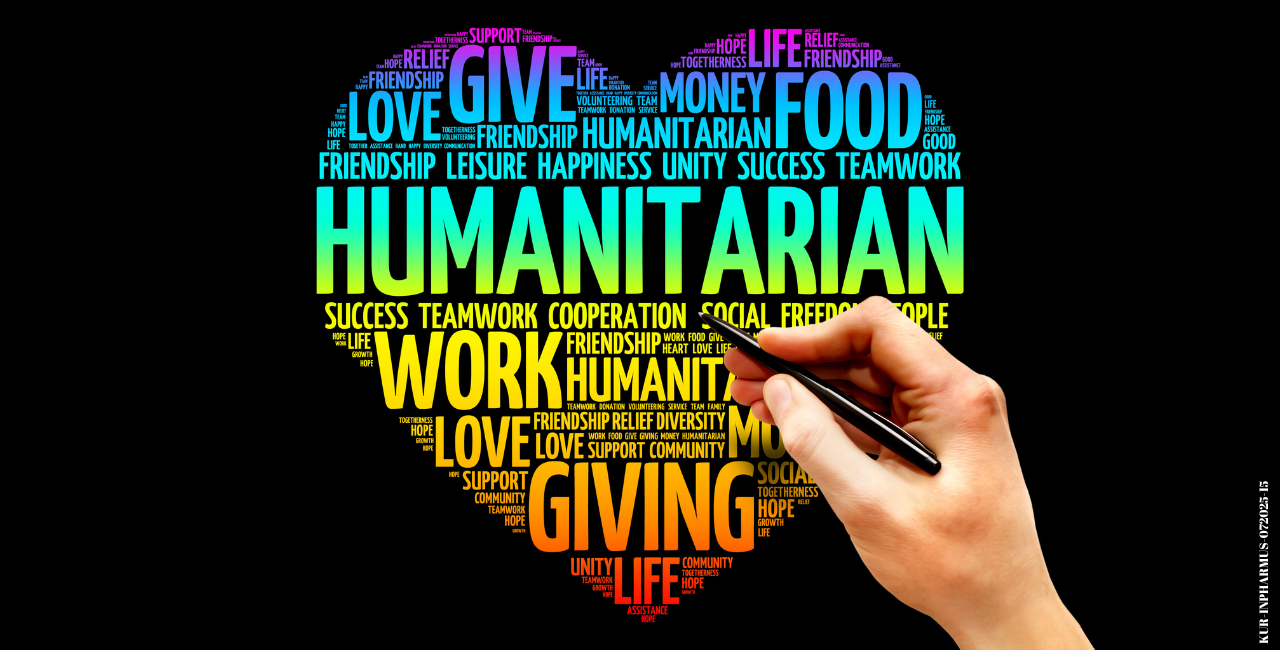
World Humanitarian Day
Research

Humanitarianaid is a phenomenon as old as human history. Throughout history, humanity has faceda wide range of adverse events — from wars and famine to pandemics and naturaldisasters — and has often required help from others to cope. Aid, whetherprovided through religious teachings or individual initiatives, has evolvedover time to become more systematic, effective, and sustainable, expanding toreach all of humanity.[1]
What is HumanitarianAid?
Humanitarian aid refers to activities aimed at relieving human suffering andminimizing the negative consequences of crises such as war, conflict,displacement, and natural disasters — including death, injury, or materialloss. In United Nations (UN) documents, humanitarian aid is defined asassistance given to alleviate the suffering of affected populations and to savelives.1
What Are the CorePrinciples of Humanitarian Aid?
Humanitarian aid is guided by a set of core principles, differing in approachbut united in purpose. These include:
1. Humanity
2. Impartiality
3. Neutrality
4. Independence
5. Empowerment
Among these, neutrality, independence, and empowerment areconsidered the most crucial. Neutrality means acting without taking sides whiledelivering aid. The principle of humanity emphasizes respecting human rightsand addressing humanitarian issues regardless of location. Impartiality meansproviding assistance without discrimination based on religion, race, orlanguage, while neutrality refers to remaining uninvolved in conflicts thatcreate victimization and humanitarian need.
In other words, whileimpartiality stresses not discriminating against those receiving aid,neutrality requires avoiding involvement in the conflicts that created the needfor assistance. The fifth principle, empowerment,refers to strengthening local institutions.[2]
The Origin andImportance of World Humanitarian Day
On August 19, 2003, a bomb attack on the Canal Hotel in Baghdad, Iraq, killed22 humanitarian aid workers, including the UN Secretary-General’s SpecialRepresentative to Iraq, SergioVieira de Mello. Five years later, the United Nations GeneralAssembly declared August19 as WorldHumanitarian Day (WHD) through an official resolution.[3]
Growing humanitarian needs —driven by hunger, poverty, climate change, conflict, forced displacement,pandemics, and their economic and educational impacts — highlight thesignificance of humanitarian aid.
Despite dangers and hardships,humanitarian workers strive to deliver critical assistance on the front linesof crises. Every year on August 19, WorldHumanitarian Day is observed to raise awareness of theseselfless workers and to encourage communities to support humanitarian efforts.[4]By doing so, we take a step toward building a more just and compassionateworld.
References:
[1] SerdarTuran, İnsani Yardım Kuruluşlarının Yerel Faaliyetlerinin Uluslararasılaşması:Türk Kızılay Çorlu Örneği, Tekirdağ Namık Kemal Üniversitesi Sosyal BilimlerEnstitüsü Yüksek Lisans Tezi, 2020
[2] ŞeymaKızılay, Değerleri Ve Aktörleriyle Türkiye’nin İnsani Yardım Politikası, UPAStrategic Affairs, 2021
[3] https://www.un.org/en/observances/humanitarian-day
[4] Tufan M,Özaltun ŞC, Erik HE, Paksoy-Erbaydar N. 19 Ağustos Dünya İnsani Yardım Günü.HÜTF Halk Sağlığı AD Toplum İçin Bilgilendirme Serisi-[Internet]http://www.halksagligi.hacettepe.edu.tr/. Erişim:19.08.2016.
.avif)
.svg)

.svg)